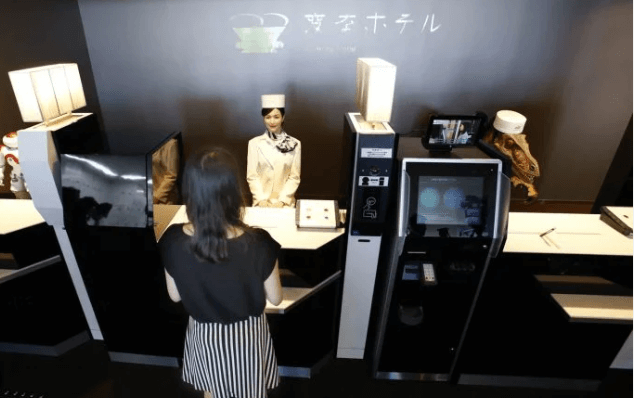The 10 Most Impactful Hospitality Technology Products for Hotels and Hospitality Businesses

In today’s fast-paced hospitality industry, technology is a cornerstone for enhancing guest experiences, streamlining operations, and gaining a competitive edge. Hotels and businesses that strategically invest in the right tech solutions not only improve operational efficiency, but also foster guest loyalty. Below, we explore some of the most impactful technologies that hospitality businesses should consider integrating into their operations.
1. Property Management Systems (PMS)
A robust Property Management System is essential for smooth hotel operations. PMS platforms manage key functions like reservations, front desk workflows, housekeeping, billing, and more. The latest cloud-based solutions make these systems accessible from anywhere, reducing the need for physical infrastructure. Many modern PMS tools also integrate seamlessly with customer relationship management (CRM) software and revenue management platforms, enabling a holistic approach to guest services and business analytics.
2. Guest Room Automation
Smart room technologies are redefining the guest experience. With Internet of Things (IoT) devices, guests can control lighting, temperature, and entertainment options with just a touch or voice command. Integrating voice-activated systems such as Amazon Alexa for Hospitality or Google Assistant allows for hands-free convenience. Additionally, mobile apps that enable personalized room settings give guests control over their environment, making their stay more comfortable and memorable.
See also: How to Choose the Right Access Point for Your Business or Home Network
3. Contactless Technologies
The demand for contactless services has skyrocketed in recent years, driven largely by changing consumer expectations and the need for enhanced health and safety. Mobile check-ins, digital room keys, and contactless payments provide guests with seamless, hassle-free experiences. These technologies also reduce wait times at the front desk and minimize physical interactions, offering convenience and peace of mind.
4. Reliable Wi-Fi and Internet Management
High-speed internet is a critical amenity for today’s travelers, especially those who work remotely or rely heavily on streaming services. Advanced Wi-Fi management systems ensure consistent connectivity across the property, catering to high data usage demands. Customizable bandwidth options and secure networks further enhance guest satisfaction and maintain operational efficiency.
5. Energy Management Systems (EMS)
Sustainability is no longer optional for many businesses, including those in the hospitality sector. Energy Management Systems optimize energy consumption by automatically adjusting HVAC settings, lighting, and other utilities based on room occupancy. Not only do these systems help reduce energy costs, but they also demonstrate a commitment to eco-friendly practices, appealing to environmentally conscious travelers.
6. Enhanced In-Room Entertainment
Gone are the days of basic cable and limited channel options. Guests now expect in-room entertainment that rivals what they enjoy at home. Smart hospitality TVs equipped with streaming apps like Netflix, Amazon Prime, and Hulu have become standard. Interactive systems that allow guests to cast their own content or access personalized recommendations further elevate the entertainment experience.
7. AI-Powered Chatbots and Virtual Assistants
Artificial Intelligence (AI) is transforming how hotels interact with their guests. Chatbots powered by AI can handle a range of queries, from booking assistance to concierge services, ensuring quick and accurate responses. These tools operate around the clock, enhancing efficiency and improving the guest experience by providing instant support.
8. Revenue Management Software
Revenue management tools are indispensable for maximizing profitability. By analyzing real-time data on market trends, competitor pricing, and demand patterns, these systems help hoteliers adjust rates dynamically. This data-driven approach ensures optimal pricing strategies, driving both occupancy rates and revenue.
9. Digital Signage and Interactive Displays
Digital signage offers a modern way to communicate with guests and guide them through the property. Interactive displays can showcase event schedules, dining options, and property maps, providing guests with up-to-date information at a glance. These tools are particularly valuable in large hotels, resorts, and convention centers where navigation and timely updates are crucial.
10. Advanced Cybersecurity Solutions
As hotels rely more on digital systems, safeguarding guest data has become a top priority. Cybersecurity solutions, such as encryption, firewalls, and real-time threat monitoring, help protect sensitive information. A strong cybersecurity framework not only ensures compliance with data protection regulations, but also builds trust with tech-savvy travelers who prioritize privacy.
Conclusion
The hospitality industry’s future is intertwined with technological advancements. By investing in impactful tools, from smart room technologies and AI-driven chatbots to sustainable energy management systems, hotels can enhance guest satisfaction, improve operational efficiency, and stay competitive in an ever-evolving market. Embracing these innovations isn’t just an upgrade; it’s a necessity for long-term success.




